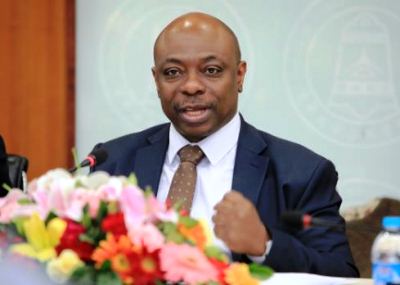UN relief chief urges urgent action to avert S. Sudan’s food crisis
March 11, 2018 (LEER) – The United Nations humanitarian coordinator, Alain Noudehou has urged urgent action from aid agencies and their partners to address the worsening food crisis in South Sudan.

During the Friday’s visits to Leer, the high level delegation reportedly met the Governor of Leer, community leaders and aid agencies who are currently assisting tens of thousands of people across the region.
Leer was one of two counties affected by famine in 2017. However, although the famine problem was stopped due to intensive humanitarian intervention, the situation remains fragile with about 85% of the population predicted to reach crisis and emergency food insecurity conditions by the end of April, aid agencies said.
“Due to seasonal time pressure, we need early funding now to reach millions of people with multi-sectoral assistance during the dry season through road transport and prepositioning of life-saving aid supplies. These same activities will be many times more costly if done by air transport during the rainy season,” stressed the UN relief coordinator.
More than 7 million people in South Sudan could become severely food insecure between May and July without sustained humanitarian assistance and access, three UN agencies recently said on a joint report analyzing food security in the country.
“Once again, I strongly urge all parties to the conflict to stop the fighting and to ensure that humanitarian agencies are given free, safe and unhindered access to all areas of South Sudan, and for all bureaucratic impediments to be removed,” said Noudehou.
With South Sudan’s civil war now in its fifth year, civilians across the country have continue to suffer from hunger, disease and displacement. Nearly 4.3 million people in South Sudan have reportedly been displaced, including more than 1.8 million who are internally displaced and about 2.5 million who are in neighbouring countries.
(ST)
